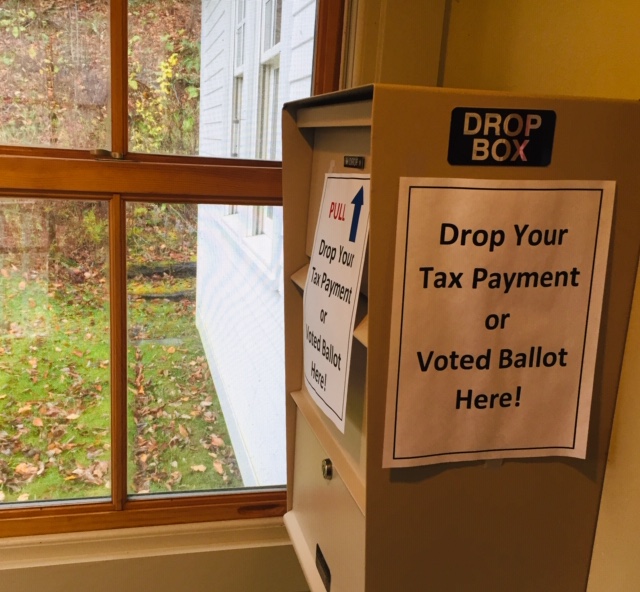In just a few days, my husband and I will drive to a swing state — a state which is considered critical to win for the 2020 presidential election, and could theoretically go for either Biden or Trump. We are going to one of these battlegrounds to serve as volunteer observers outside a polling station on Election Day. We are determined to do our part to help ensure a fair voting process.

We’ve been told to report for duty very early on Tuesday morning and plan on staying till late evening, after the last vote has been cast. We are taking food, water, and lawn chairs. I expect the day to be exhausting, uplifting, interesting, tense, rewarding, maybe scary, and ultimately happy-making.
There are multiple reasons why this experience is likely to increase my happiness, but one in particular is kind of fascinating to me. In my Certificate in Positive Psychology training, lead teacher Tal Ben-Shahar taught us that our brains are happier when our actions are in concordance with our self image — ie, living our professed values. Walking the self-talk.
Being a poll observer ticks a lot of boxes for me. I am a committed social justice activist who has loudly and frequently exhorted others to also do their best to save democracy. Because I have urged others to step out of their comfort zones and don’t fancy myself a hypocrite, I, too, need to step out of my comfort zone. Being a poll observer will take care of that! I also aspire to being a white ally in the fight for racial justice. That is what I’ll be doing if we’re stationed at a polling station in a predominantly Black neighborhood, which is where I expect poll observers are most needed. For these and other reasons — some admirable, others maybe just an ego trip — I should end Election Day with a brain made content by my choice to take actions which live up to my mental construction of who I am.
Of course, it should go without saying, that is not why I signed up to be a poll observer! There are far easier ways to come by my daily dose of happiness. And other factors may overwhelm the concordance factor, leaving me quite unhappy indeed. While we intend to remain peaceful, it’s not hard to image some invective being thrown our way and piercing my not particularly tough skin. There’s also a definite possibility that I’ll make mistakes, and be unhappy about them, especially if I am tired and raw and my resilience is down. Events of the day, combined with exhaustion, could deplete all my emotional and physical resources.

Even then, it is likely that my brain will later feel happy about the whole thing. I hope this will be a day I can look back on with pride.
Here’s another “of course”: since this is still very much the time of Covid-19, safety is also a major concern. Leaving Vermont, which has had a very low rate of infections, to go to an area where the pandemic is much worse is starting to make me nervous. We’re going to be outside observers, with masks, and instructions to main social distancing protocol. Still, I hope I’m not letting my determination to stand up for my commitment a fair voting process override my common sense about doing my part to limit the pandemic’s spread. I plan to stay safe — but what if this all turns out to be a bad idea?
Which illustrates that acting in concordance with values isn’t always an easy call. It can require discernment. Sometimes that means stepping up, sometimes that means stepping back. The hardest ethical choices aren’t between a right and a wrong, they are between two rights. Happiness might have a vote in the matter, and might be part of the outcome, but it shouldn’t necessarily be in the driver’s seat.
So why, then, does this matter to you? For two reasons, I think. First, being aware of happiness opportunities in everyday life choices can help you be a happier person. Second, you can use your brain’s desire for concordance to help you achieve your own goals in life and, again, grown a little happier.
First, awareness. Lately, I’ve been thinking asking people to reach for happiness may be too high a bar right now — but most of us can at least be happier. There are so many choices we can make in daily life to be happier — savoring that first cup of coffee, being grateful for a hot shower, etc. I think it’s both interesting and important to understand as much as we can about cultivating personal happiness — especially during a pandemic!
Second, you can actually use your own brain’s desire for your actions and ideals to be in sync as a tool for achieving your goals (something else that makes us happy!). Let me give you an example. I’ve known for a long time that I wanted to write a happiness book combining the perspectives of Gross National Happiness systems change with the personal happiness movement. That book, Preaching Happiness: Creating a Just and Joyful World, became a published reality in May 2020, but for a long time I was stumped. I was busily writing in my head, but couldn’t seem to make myself sit down in front of the laptop and actually commit words to virtual paper. It was frustrating and disappointing.
So I decided to try a method Tal Ben-Shahar had described. Each day, I meditated for 15 to 20 minutes, visualizing the entire process of writing the book, working with an editor, re-writing, getting critiqued, re-writing, until finally I visualized my own published book — which elated me. Critically, though, I had to visualize the work, not just the final happy outcome. Day after day. These visualizations had the effect of convincing my brain that my commitment to the work was real, not just imaginary. Eventually, my brain felt the conflict between my perceived values — doing the work of writing — and my lack of actually doing the work. My brain’s discomfort finally pushed me into the real work necessary to give birth to a book.
In other words, visualization does work — but only if you also visualize the work. There’s nothing magical about it.
Here’s one more, “of course” — the brain can be fooled, but it is very complex. Life is very complex. Humans — phew, do we ever have complex wiring! It’s not as though I sat down after those meditations and whipped out a book in record time. I did not. Nor will brain concordance likely leave me giddy on Tuesday night.
But it’s one more piece of the happiness puzzle, one more reason for each of us to live up to our values, and one more tool for being a little bit happier in the time of covid.


